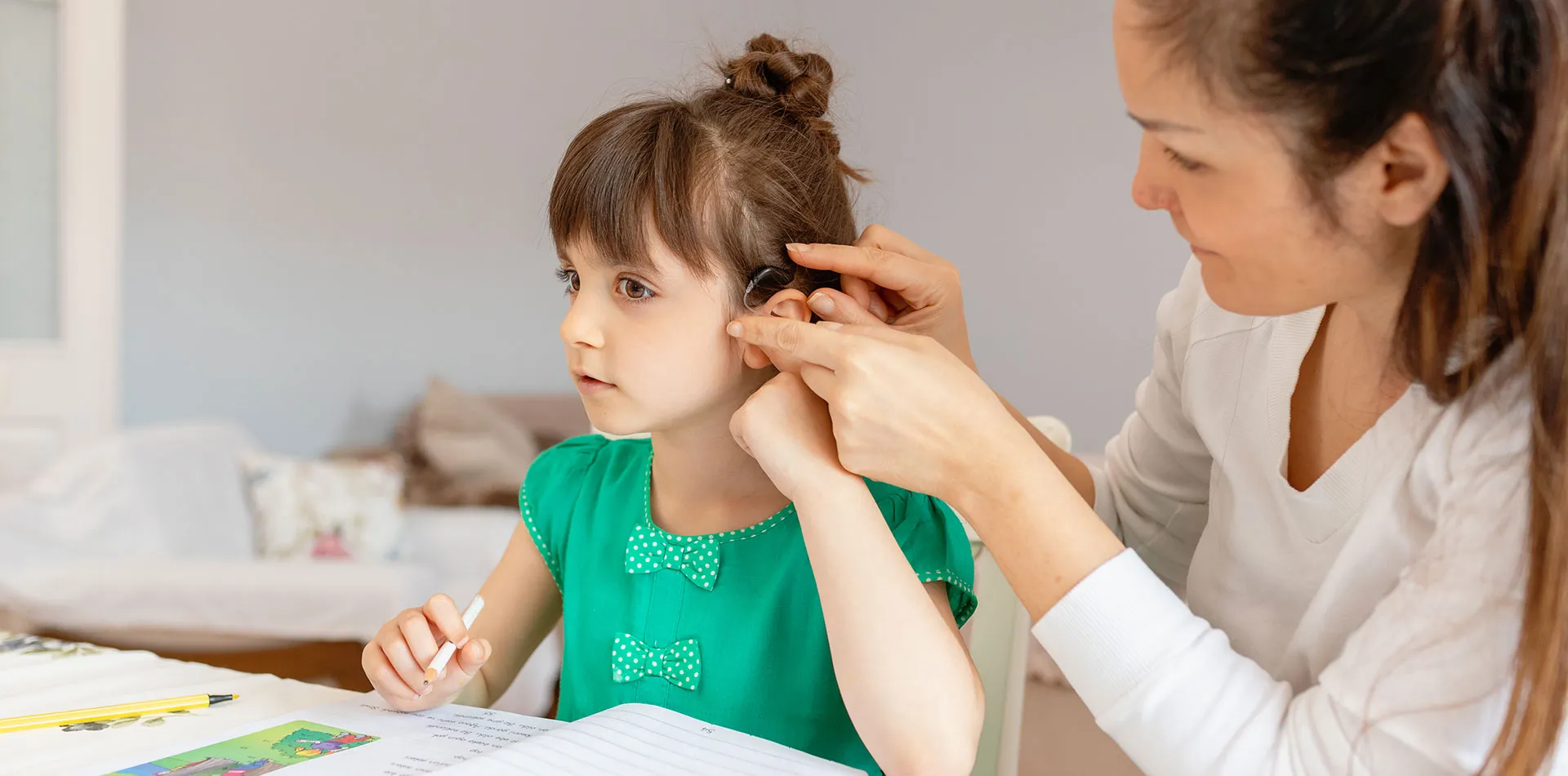
Hearing is essential for the proper development of a child. It is therefore important to monitor whether your child can hear well, as deafness can go unnoticed.
Hearing is not only essential for language acquisition, but also for a child's overall development. Profound deafness could have severe consequences if detected beyond the first year of life. Indeed, with a lack of stimulation, the auditory areas naturally atrophy making the recovery of good hearing less certain.
In babies under 12 months:
• It doesn't sound or makes less sound at 4-6 months of age than it does at a few weeks old.
• It does not react and does not wake up when there is a very loud noise.
• It does not turn its head in the direction of your voice or noise.
• A language delay
• behavioral problems: hyperactive child or on the contrary too shy
• learning disabilities
• difficulties hearing when in a group or when there is background noise
• Often has trouble hearing what you say
• Speaks in a strange way or strange voice
• Makes an effort to look at someone speaking or hears better when looking at the face and lips of the person speaking.
• Does not react when you speak quietly or from behind
• Responds best when you talk to in one ear rather than the other.
If your child has one or more of these signs, talk to your doctor who can refer him/her for a hearing test.
There are several types of hearing loss. Some are temporary but others are permanent.
Temporary hearing loss can be due to a blockage or an accumulation of fluid behind the ear.
So-called sensorineural hearing losses are permanent. Hearing loss affects a part of the nervous circuit that decodes sound: the inner ear (the cochlea; nerve cells in the inner ear), the auditory nerve or the hearing area of the brain (the auditory cortex). Among the causes we find:
• Certain congenital anomalies
• Certain infections contracted during pregnancy (e.g. rubella, cytomegalovirus, toxoplasmosis, herpes, syphilis) or at any time during childhood (e.g. meningitis)
• Exposure to certain environmental factors (e.g. certain drugs toxic to the auditory nerve)
• Thyroid gland disorders
• Severe prematurity
• Severe jaundice after birth
• No specific cause detectable for nearly 30% of children
The tests are age-appropriate and can be done from birth.
In newborns, systematic screening for deafness is carried out in the maternity ward in some centers. The test is painless and involves placing a small probe in the newborn's ear. This probe sends a faint sound, only takes a few seconds to perform and you get the result straight away.
There are different degrees of deafness. Deafness in children will be measured according to the sounds they perceive:
- Mild deafness: loss of 0 to 40 db (high-pitched sounds)
- Average deafness: loss of 41 to 70 dB. The child perceives loud voices very well but not weak voices
- Severe deafness: loss greater than 71 dB. The child has difficulty perceiving loud noises.
When hearing impairment is detected in a toddler, care should not be delayed, in particular, to facilitate language learning. Stimulating the child's hearing system as early as possible is a condition for the proper recovery of hearing capacity.
Temporary hearing loss: the solution has to be treated. It can be wax removal, medical treatment of otitis, ear tube insertion in the case of accumulation of fluid behind the ear.
Pediatric hearing aids: Hearing aids amplify sounds. The size is suited for the child and can be put on very early from a few months old.
The cochlear implant is an electronic device that transforms acoustic auditory information into an electrical signal delivered directly to the auditory nerve.
Cochlear implantation consists in putting in place, in the cochlea, a system that will electrically stimulate the departure of the auditory nerve and thus restore sound sensations. The cochlear implant is placed during an operation under general anesthesia.
Deafness can have an impact on language acquisition: vocabulary, understanding, and structuring of sentences ... The speech therapist will support the child in the acquisition of language, the best perception of sounds and their differences, and learning to write.
In addition, the use of hearing aids, and more so of a cochlear implant makes it necessary for support work to be carried out, in a back and forth between the speech therapist and the hearing aid specialist, in search of most profitable settings and to promote the child's adjustment to these devices.
Our Department offers newborn screening and has all the equipment to assess your child's hearing regardless of age.
Our service has a comprehensive team enabling us to take care of possible deafness very early from birth: audiologists, hearing aid services, and doctors and surgeons if a cochlear implant needs to be implanted.
Patient Experience